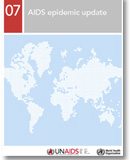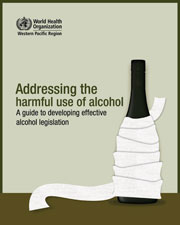
New statistics presented: HIV prevalence has levelled off

New data show that global HIV prevalence - the number of people living with HIV - has levelled off. The number of new infections has fallen. This was the conclusion drawn by UNAIDS when new AIDS statistics were presented.
New data presented in Geneva 20 November show that global HIV prevalence — the percentage of people living with HIV — has levelled off and that the number of new infections has fallen, in part as a result of the impact of HIV programmes. However, in 2007 33.2 million people were estimated to be living with HIV, 2.5 million people became newly infected and 2.1 million people died of AIDS.
The new statistics were presented by the Joint United Nations Programme on HIV/AIDS (UNAIDS) and the World Health Organization (WHO) in the report 2007 AIDS Epidemic Update. The report reflects improved and expanded epidemiological data and analyses that present a better understanding of the global epidemic. These new data and advances in methodology have resulted in substantial revisions from previous estimates.
The full text of the 2007 AIDS Annual Update can be downloaded here.
Global HIV incidence — the number of new HIV infections per year — is now estimated to have peaked in the late 1990s at over 3 million new infections per year, and is estimated in 2007 to be 2.5 million new infections, an average of more than 6 800 new infections each day. This reflects natural trends in the epidemic, as well as the result of HIV prevention efforts.
The number of people dying from AIDS-related illnesses has declined in the last two years, due in part to the life prolonging effects of antiretroviral therapy. AIDS is still among the leading causes of death globally and remains the primary cause of death in Africa.
“These improved data present us with a clearer picture of the AIDS epidemic, one that reveals both challenges and opportunities,” said UNAIDS Executive Director Dr Peter Piot at the launch of the 2007 AIDS Epidemic Update. “Unquestionably, we are beginning to see a return on investment. New HIV infections and mortality are declining and the prevalence of HIV levelling. But with more than 6 800 new infections and over 5 700 deaths each day due to AIDS we must expand our efforts in order to significantly reduce the impact of AIDS worldwide.”
Press release, fact sheets, Q&As, slides and other material about the 2007 AIDS Annual Update can be found here at the UNAIDS web site
![]()
![]()
Developed with CustomPublish CMS by Nettinfo AS




